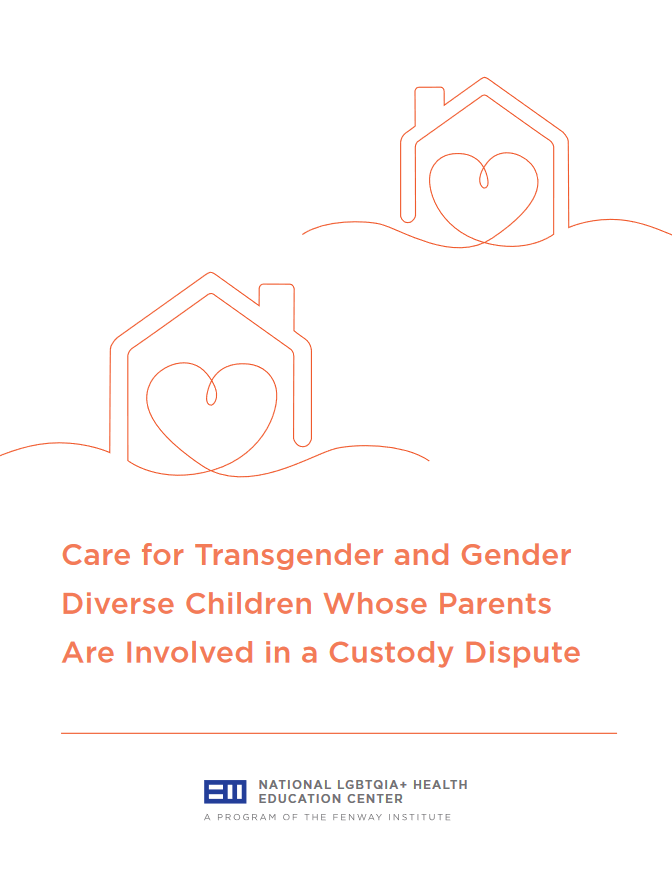Custody disputes involving transgender and gender diverse (TGD) children and adolescents require careful consideration due to the unique medical, social, and mental health needs of TGD youth. This is especially the case when one parent is less accepting of the child’s gender exploration/identity than the co-parent. Due to a lack of familiarity within family courts regarding TGD children, harmful misinformation has resulted in the more gender-affirming parent losing physical and/or legal decision-making custody of their TGD child to the non-affirming parent.
In many cases, family courts call on the TGD child’s primary care provider for guidance and professional opinions when parents disagree about a child’s gender identity or expression. It is therefore imperative that health center clinicians understand the underlying issues that may adversely affect the physical and mental health of this particularly vulnerable subset of TGD children.
The purpose of this brief is to:
- Provide a foundation and context for clinicians to feel better prepared and confident to educate family court professionals
- Offer best practices to illustrate how clinicians can appropriately and compassionately navigate care when co-parents disagree regarding medically necessary interventions
- Assist clinicians as they consider structural interventions to improve outcomes for TGD children and their families in the family court system


